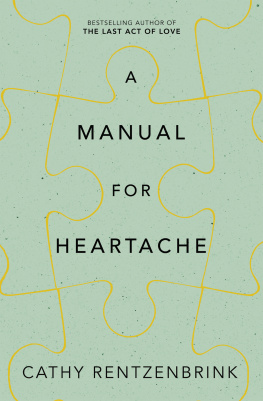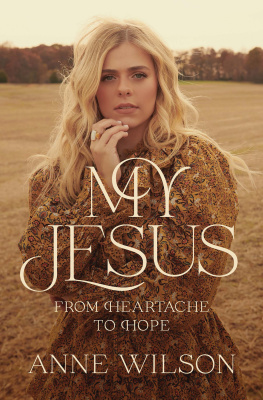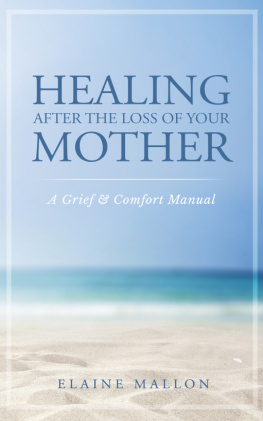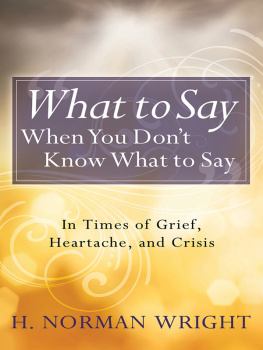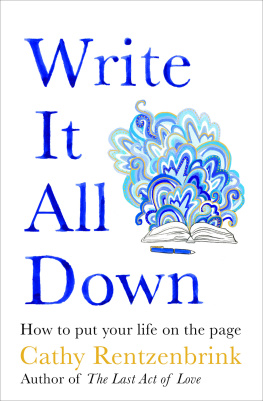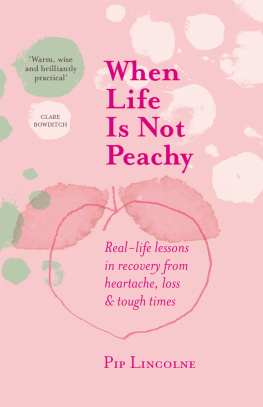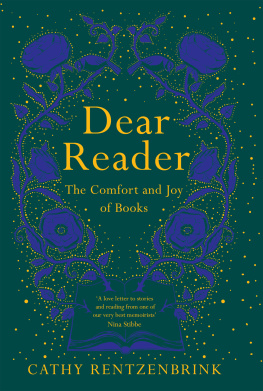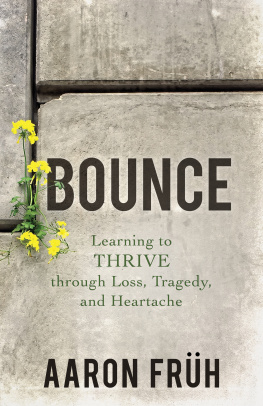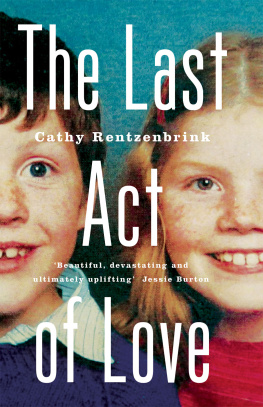What to Do When the Worst Happens
Hold steady. Sadly, lifes not fair. Sometimes there is no meaning or purpose to what happens to us or those we love. We can simply find ourselves in the wrong place at the wrong time. Dont ask, Why me? but rather, Why not me? Its cruel. It hurts so much. The pain is beyond anything you could ever have imagined.
Oh, I was angry with the people who tried to tell me about the five stages of grief. How could anyone know what I was feeling or try to reduce me and Matty and the uniqueness of my loss of him to a system? They made no sense to me, these stages. I didnt feel as though I was moving through a process. My grief wasnt linear. When I imagined it plotted on to the graph paper used to track Mattys temperature in hospital, it didnt show an upward gradient but a series of violent zigzags. Grief felt to me like an ever-extending roller coaster that dipped and swirled into new routes. Or a bucking bronco that might occasionally have a small rest before waking up with a vengeance, newly committed to trying to chuck me off its back.
Recently I decided to look up those stages and was expecting to see all the ways in which they are flawed. Instead, now that Im no longer incapacitated by anger and confusion, I can see they arent supposed to be interpreted as a one-size-fits-all, identikit plan, but are a useful guide to some of the ways loss works upon us. Experiencing grief for the first time is like the dark twin of falling in love. It feels a bit crazy, and we dont think anyone has ever felt exactly as we do. But of course they have.
Denial, anger, bargaining, depression, acceptance. They didnt happen in much of an order for me, but I can now see that they are recognizable and relevant to any kind of loss. We dont want to believe its happened, were angry with a world that has allowed it to happen, we keep thinking of things that might have stopped it happening, we cant see any point or relevance to ever caring about anything else and then, finally, finally, we accept not what has happened, but that life is still there to be lived.
If I could travel back in time and advise my younger self, I would not hide the fact that a whole new world of suffering had opened up, but I would encourage her to learn to recognize her urge to escape pain and try to resist it. There is nothing wrong or shameful in your distress, Id say, and it will be better for you in the long run if you express it now. I promise it wont always feel like this.
Ive never understood the notion of time being a great healer, because all I ever tried to do was grit my teeth and wait for time to pass or try to distract myself from it, but I missed the point. Time itself doesnt have magic properties; its what you do with the time that matters. As my friend Dawn says, Time heals, but its a slow fucker.
Recently my mother told me something I never knew. After Matty was knocked over, she used to go alone down to the river, and there, on the banks of the Ouse, she would howl and howl. Then she would come back and get on with what needed to be done. She allowed herself to feel her anger, but did it in a way that didnt make things worse.
I couldnt bear to feel the pain of losing my brother, so I refused to allow time to do its work and was drunk for a decade. Then I stopped getting quite so drunk and started pouring my energy into work; and work, like alcohol, is not a bad way of refusing to sit with pain. Finally, I have stopped running away or drowning out my feelings and have allowed myself to become acquainted with the darker emotions of sadness, anger, fear and shame. And, with time, I have felt better.
The important thing to remember is that being upset over a loss or sadness is not an illness. It is part of being human. I used to be angry with grief and see it as a design flaw. I couldnt grasp the sheer scale of the mourning Id done for Matty, couldnt see a purpose in those millions of tears.
When Matty and I were little and were trying to figure out the meaning of love, we decided that it meant youd cry if someone died. And maybe that is it. I loved him, he died, and for years, I cried.
I have a new respect for grief and a new respect for myself as a traveller in it. I used to be frightened of loving people because I thought I wouldnt survive losing them, but now I see that making friends with grief, accepting it as part of being human, will liberate me to love even more, and that the love is always worth it.
I Am One in Four
In some cases loss and trauma can impact on our mental health. There isnt always a cause or trigger for mental health problems it is perfectly possible to be mad without grief, mad because of grief or grieving without madness. For me, they have always felt linked.
According to the mental health charity MIND, one in four people will suffer a mental illness this year. Since finding this out Ive been looking around me in social situations and wondering where they are.
Imagine a packed football stadium, a crowded street, the top deck of a full bus. Imagine if one in four of the people were sporting a big bandage wrapped around their head. Youd spot them immediately. If you had a bandage of your own, there would be plenty of other people with whom you could exchange sympathetic smiles, little flashes of empathy. Perhaps you could even compare bandage lengths and styles, ask them how they cope, if theyve got any useful tips and tricks. But this one in four is almost completely invisible. Each of us soldiers on alone thinking its only us or properly mad people, straitjacketed characters in films and literature, and the occasional celebrity spokesperson. We dont realize how common it is to experience a bout of mental ill health.
One in four is a huge number of people. It means that every one of us is closely connected to someone who struggles with their own mind. I think thats a reassuring thing to know. You are not alone. You are neither special nor terrible, you are just one in four.
I am one of the one in four. I had my first episode of depression when I was nineteen and Ive been in and out of it ever since, with side helpings of anxiety and forays into panic attacks and psychosomatic illnesses. People often ask me whether my mental health struggles are a direct result of what happened to my brother or whether I might have had problems anyway. Its a good question and I dont know the answer. I hadnt experienced depression before the accident but I was seventeen then; there wasnt much of me to know. When I was nineteen I was diagnosed with posttraumatic stress disorder, which has both depression and anxiety as its symptoms and would seem to fit the bill. Later, I thought this diagnosis must be wrong because surely it shouldnt keep carrying on. There must be something else, something different wrong with me.
Its tricky to write about depression. When Im in it I see no point to anything so its impossible to summon the necessary energy, and when its over the whole thing has a strange dreamlike texture and I cant really remember it. Im superstitious about it, too. Im not sure I want to recall it well enough to write about it, because I dont want to remind myself of the feelings.
For me, depression is a dark, sludgy cocktail of lethargy, despair and futility. Other people talk of black dogs, but mine is all weather and weight. Im surrounded by fog, mist, gloom, smoke and clouds. I feel heavy, and tied down, as though there are invisible weights strapped to my legs. Sometimes I feel pinched and bullied by disembodied wraith-like fingers that inject lead into my veins so my very blood is heavy. Other times I feel as though Im suffocating, as though Ive fallen face down into an enormous grey marshmallow and cant get up. Once I had a dream that I was at soft play with my son, but all the plastic balls were black and grey and I was buried under them and couldnt move or breathe.

